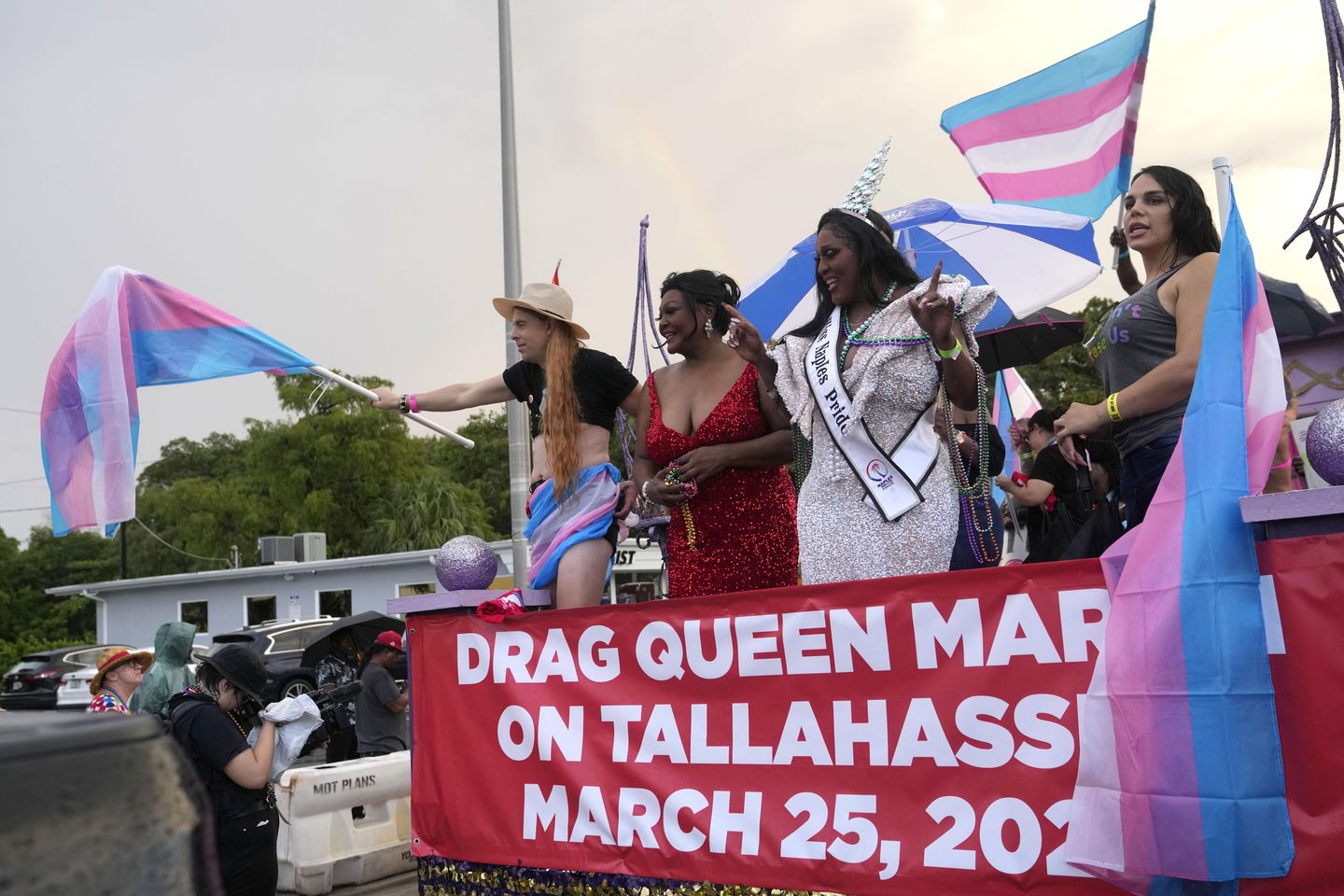
An LGBTQ organization sued the city of Naples, Florida, after it was denied a permit to hold its summer drag queen show at an outdoor public park alongside a playground, where children play in the highly trafficked downtown.
Naples Pride, represented by the American Civil Liberties Union of Florida, filed a federal lawsuit on April 11 against the Collier County city, arguing it violated the First Amendment by putting restrictions on its application to perform at downtown Cambier Park this year.
The lawsuit says the city engaged in content and viewpoint discrimination in denying Naples Pride’s request to hold its show outdoors. This year’s permit was approved but with restrictions, including that it occurs indoors with age requirements. The event is scheduled for June 7.
The city said the group can admit people only over age 18, and it imposed a $30,000 security fee, in addition to the outdoors ban.
Naples moved the drag show indoors — away from children — the past two years, when cities across the country grappled with how to handle a push from LGBTQ advocates to hold family-friendly drag shows with children at parks and public libraries.
According to the Naples Pride complaint, the group held its shows outdoors since 2017 but after an anti-LGBTQ wave, it was forced to hold them indoors in 2023 and 2024. Ticket sales and fundraising dropped.
The case, filed in the Middle District of Florida, asks the judge to block the city’s decision and rule that it runs afoul of the Constitution. Oral arguments were held Friday. The case was assigned to U.S. District Judge John E. Steele, a Clinton appointee. According to Fox 4, a TV affiliate in Cape Coral, just about an hour north of Naples, the judge indicated he would rule next week.
“Before the city, emboldened by anti-LGBTQ+ sentiment, imposed unconstitutional burdens on Pridefest, Naples Pride was able to feature its family-friendly drag performance without issue for years,” said Samantha Past, an attorney with the ACLU of Florida. “The First Amendment ensures that viewpoint and content-based discrimination cannot infringe on freedom of speech and expression. Drag is an art form that holds great significance to the LGBTQ+ community both as a form of social commentary and celebration. Drag is constitutionally protected, even if someone doesn’t like it.”
In court, the city attorney told the judge security concerns and risk factors were at play when they decided to move the drag show indoors, Fox 4 reported.
Legal experts were skeptical of the city’s decision passing judicial scrutiny when it came to the First Amendment.
Josh Blackman, a professor at South Texas College of Law, said the court may find some concerns with the city’s decision if Naples Pride can show that non-LGBTQ groups were given permits.
“The fact that they want to put this on the stage right next to the playground is quite intentional,” he said. “But if other groups were allowed to use this venue, it will be hard to keep the drag queens out.”
Eugene Volokh, a law professor at the University of California, Los Angeles, said the First Amendment protects drag shows.
“The First Amendment protects theatrical performances, and there’s no exception for drag shows. The law may require that children be excluded from the audience of pornographic performances — ones that depict sexual conduct in an explicit way that appeals to minors’ sexual interests. But if a drag show doesn’t include such explicit sexual content, it’s constitutionally protected even when children are present,” he said in an email to The Washington Times. “Nor can the government suppress such speech, or require that it be moved indoors, by citing the risk of protests or even violence by protesters; the Supreme Court has rejected any such ’heckler’s veto’ that would restrict the constitutional rights of peaceful speakers because of the hostility of violent protesters.”


![Pentagon Begins Booting Trans Troops After Supreme Court Greenlights Ban [WATCH]](https://www.right2024.com/wp-content/uploads/2025/05/Pentagon-Begins-Booting-Trans-Troops-After-Supreme-Court-Greenlights-Ban-350x250.jpg)


![Trump Posts Hilarious Pope Meme, Leftists Immediately Melt Down [WATCH]](https://www.right2024.com/wp-content/uploads/2025/05/Trump-Posts-Hilarious-Pope-Meme-Leftists-Immediately-Melt-Down-WATCH-350x250.jpg)





![Soros Network, Others Behind LA Riots [WATCH]](https://www.right2024.com/wp-content/uploads/2025/06/Soros-Network-Others-Behind-LA-Riots-WATCH-350x250.jpg)





